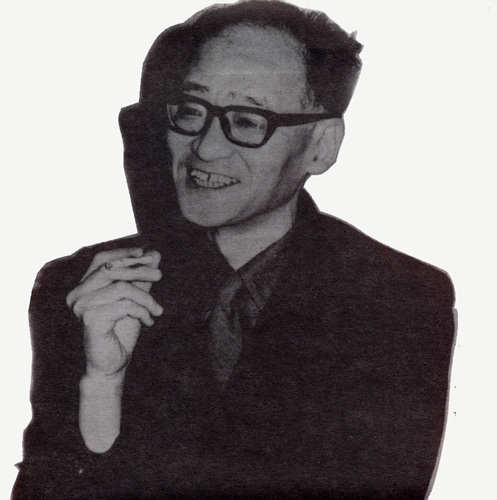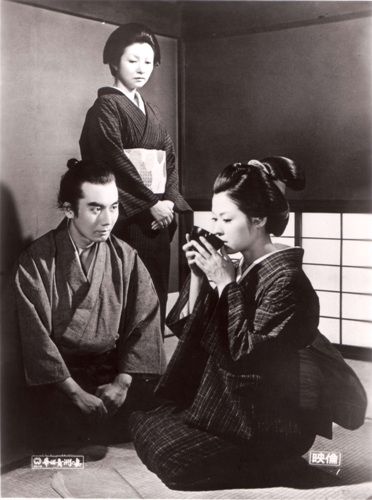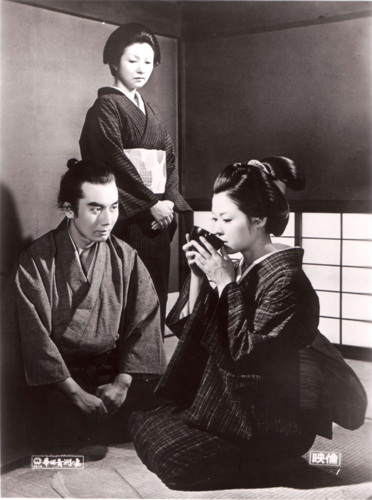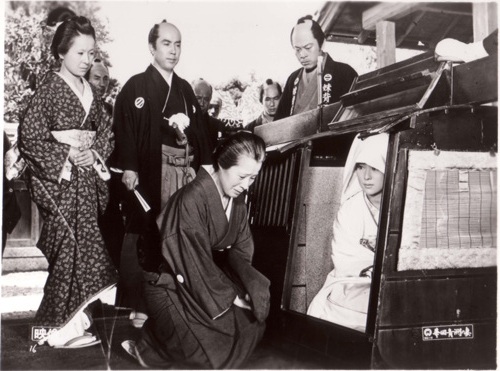6th(2004)
The Wife of Seishu Hanaoka / Hanaoka Seishu no Tsuma
Masumura Yasuzo
- Japan
- 1967
- 99min
- 35mm
- black and white
SYNOPSIS
While the story seems to focus most on the jealous rivalry of the mother Otsugi (Takamine Hideko) and the wife Kae (Wakao Ayako) over Seishu, underlying this rivalry is Kae’s fascination with Otsugi: at the age of 8, Kae saw Otsugi, who instantly became the ideal image of womanhood for her, prompting her to marry and become her daughter-in-law. The intense competition between Otsugi and Kae is perfectly captured by Takamine and Wakao. What is more, the on-screen competition was heightened by the off-screen one: only 9 years senior to Wakao, Takamine had already established her incomparable reputation as a great actress after a brilliant career spanning 40 years, while Wakao, having begun her career as an idol, had been struggling for ten years to establish herself as an “actress”, not a “star”, under Masumura’s demanding direction. The concentrated performance of these two strong-willed actresses compellingly reveals that behind women’s self-sacrifice and devotion lies the rebellious nature of intricate emotional involvement and repression under patriarchy. (Saito Ayako)
PROGRAM NOTE
While the story seems to focus most on the jealous rivalry of the mother Otsugi (Takamine Hideko) and the wife Kae (Wakao Ayako) over Seishu, underlying this rivalry is Kae’s fascination with Otsugi: at the age of 8, Kae saw Otsugi, who instantly became the ideal image of womanhood for her, prompting her to marry and become her daughter-in-law. The intense competition between Otsugi and Kae is perfectly captured by Takamine and Wakao. What is more, the on-screen competition was heightened by the off-screen one: only 9 years senior to Wakao, Takamine had already established her incomparable reputation as a great actress after a brilliant career spanning 40 years, while Wakao, having begun her career as an idol, had been struggling for ten years to establish herself as an “actress”, not a “star”, under Masumura’s demanding direction. The concentrated performance of these two strong-willed actresses compellingly reveals that behind women’s self-sacrifice and devotion lies the rebellious nature of intricate emotional involvement and repression under patriarchy. (Saito Ayako)
Director
-

Masumura YasuzoMasumura Yasuzo
Born in 1924, Masumura Yasuzo majored in law at Tokyo University towards the end of World War II. He returned to college after the war for another degree in Literature and Philosophy while working as an assistant director at Daiei Studios. After graduating in 1949, he studied film at the Centro Sperimentale Cinematografia in Rome and returned in 1953 and began assisting Mizoguchi Kenji and Ichikawa Kon. He made his own directorial debut with the wild and gritty feature, Kisses, about a down-on-their-luck young couple in 1957. Virtually all of his films were made within the commercial film industry but they display a fascination with madness and a passion for the extremes of human behavior. His other films include Giants and Toys(1958), Afraid to Die(1960), The Black Test Car(1962), The Sex Check(1968) and Blind Beast(1969).
Credit
- ProducerNagata Masakazu
- Cast Ichikawa Raizo, Wakao Ayako, Takamine Hideko
- Screenwriter Shindo Kento
- Cinematography Kobayashi Setsuo
- Editor Suganuma Kanji
- Music Hayashi Hikaru




